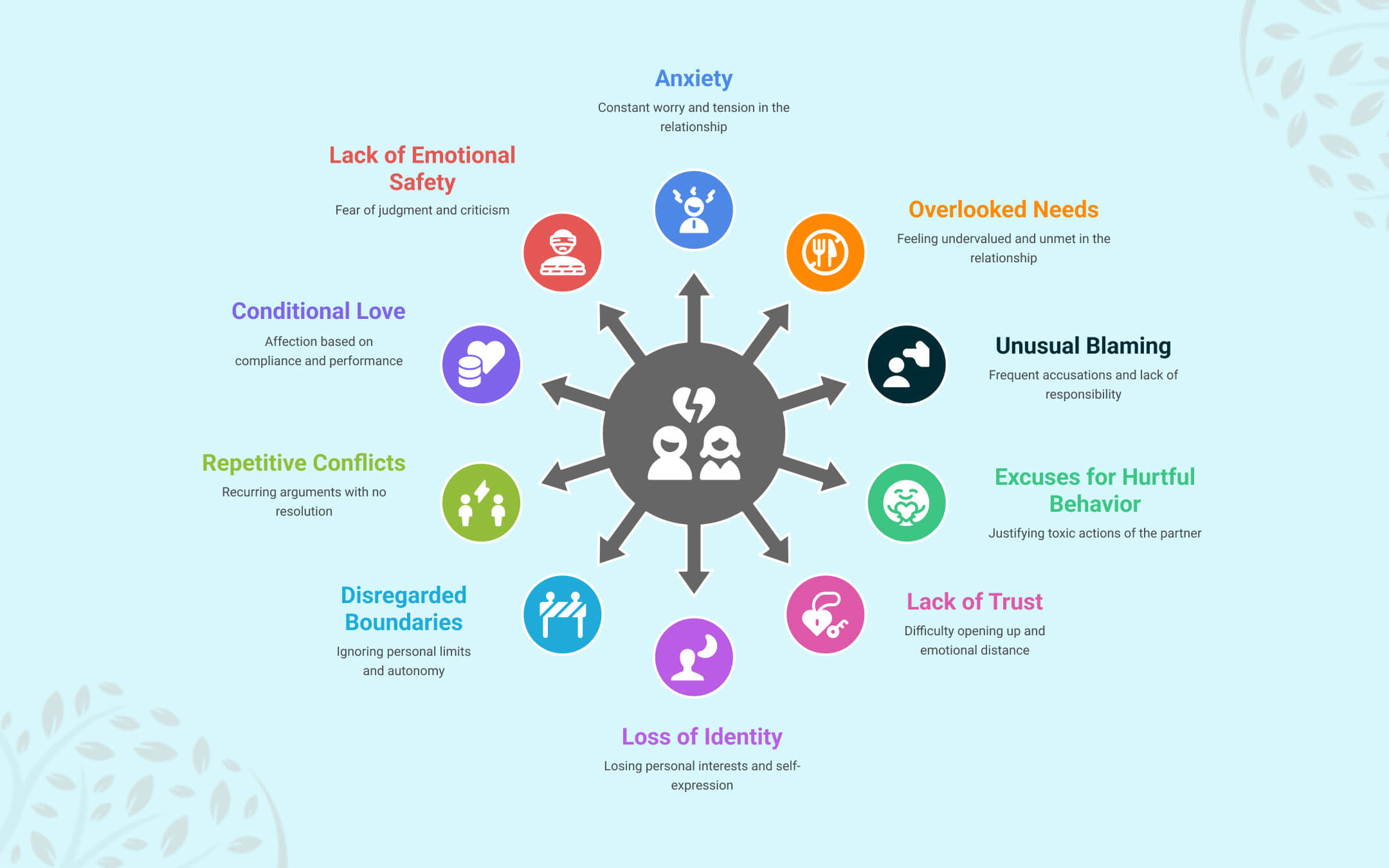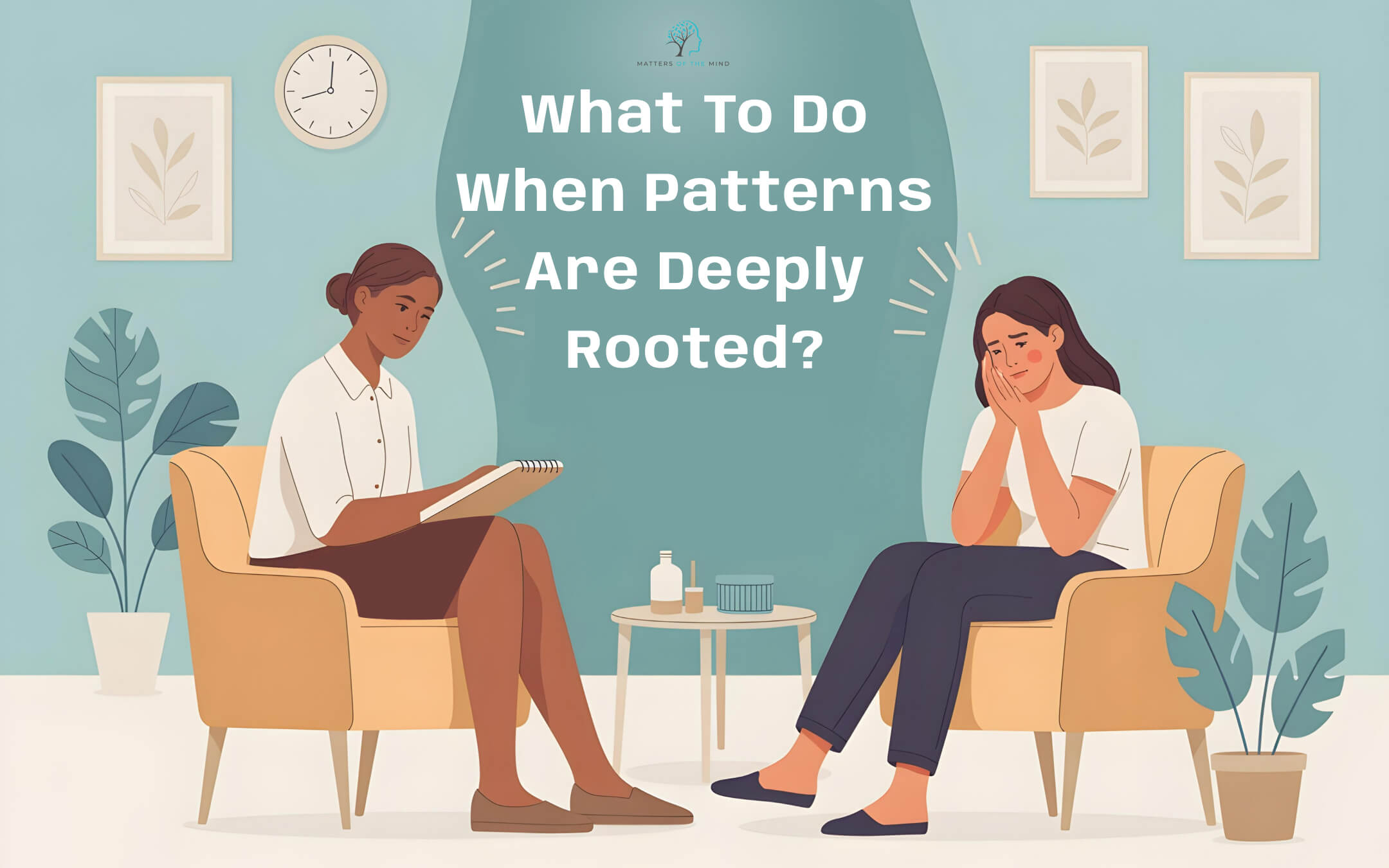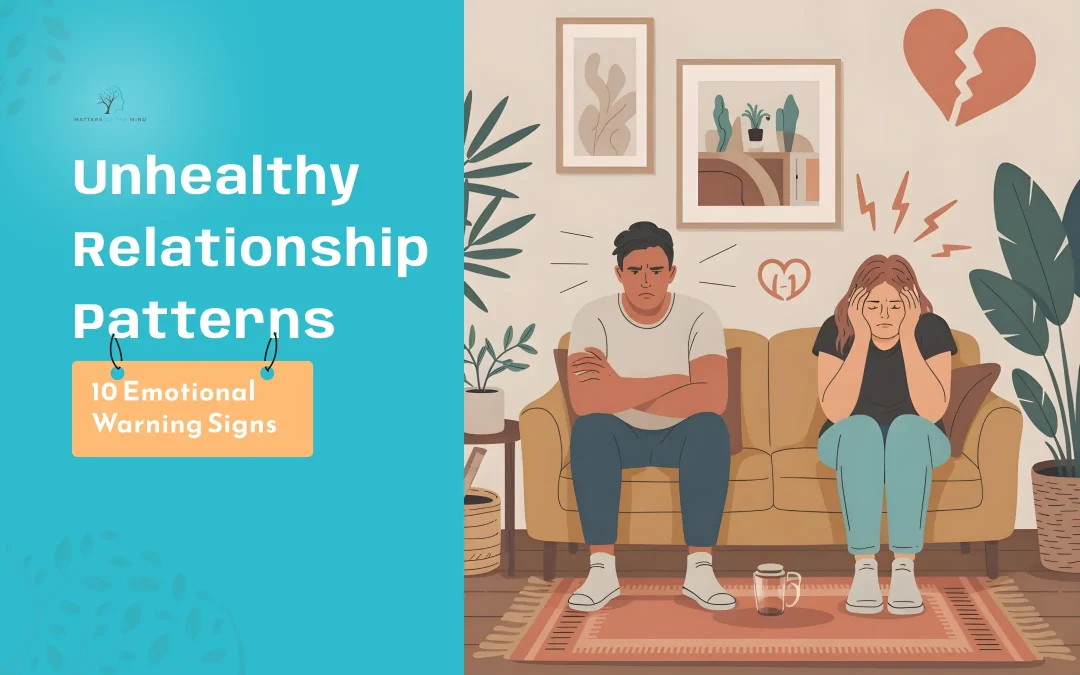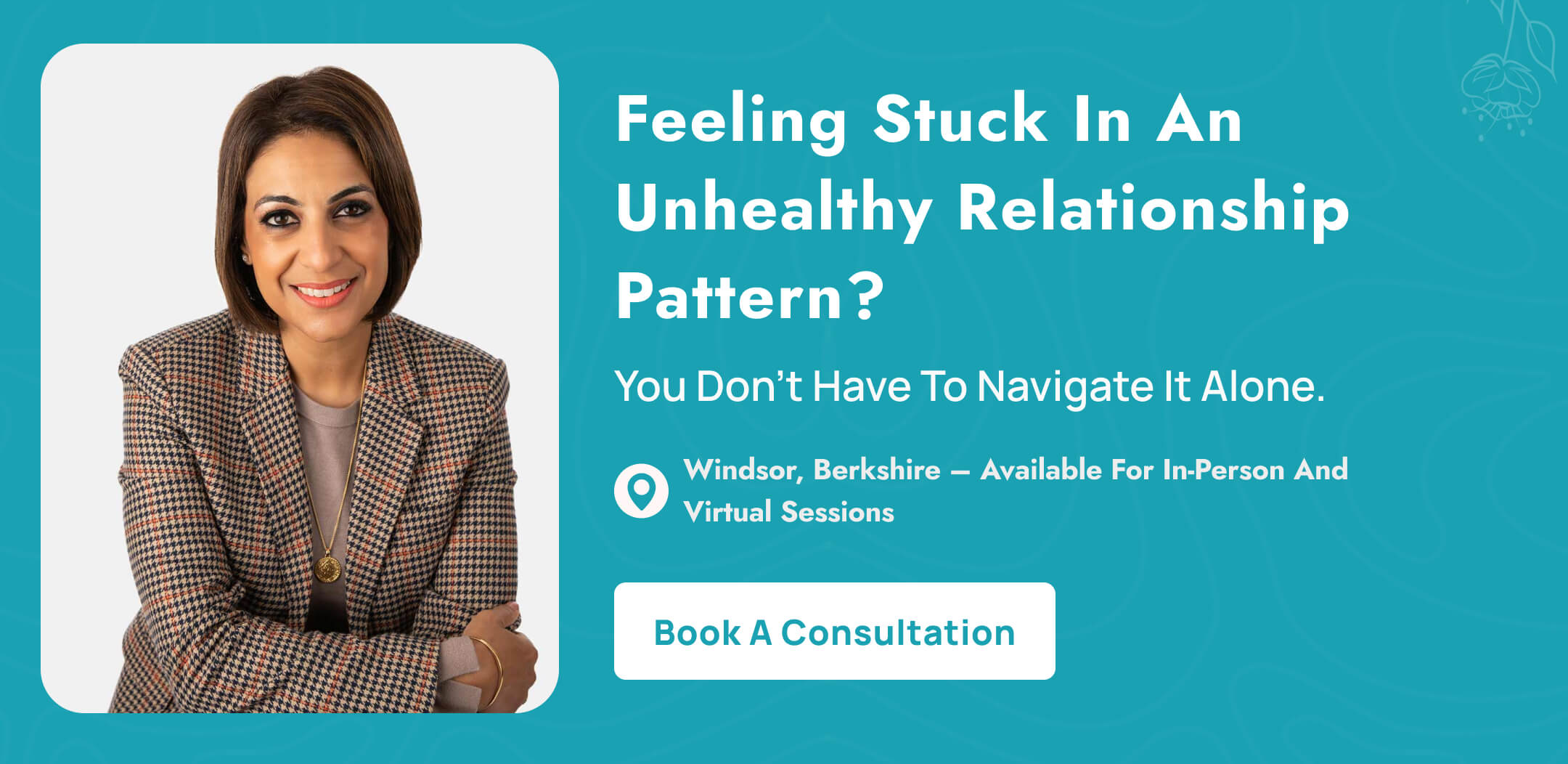Signs of an Unhealthy Relationship Pattern

1. You often feel anxious
A relationship should be a space where you feel safe to be yourself. But if you feel tense, worried about an argument, or nervous about expressing your need, these are the emotional warning signs. Anxiety in relationships often stems from inconsistent behaviour, emotional unpredictability, or a fear of rejection. You may find yourself replaying conversations or rehearsing conversations even before they happen. Unnecessary anxiety can reinforce a cycle of emotional suppression and disconnection.
2. Your needs are overlooked
3. Unusual blaming
4. You make excuses for others’ hurtful behaviour
5. Lack of trust and emotional intimacy
6. You lose your own identity
7. Disregard boundaries
8. Conflicts in every situation
In systemic therapy, it is often observed that conflict patterns are part of larger relational systems. If every disagreement seems to follow the same script, escalating quickly, ending with blame or shutdown, and resolving nothing, this loop can become emotionally exhausting. Repetitive conflict, especially when fueled by past baggage or miscommunication, indicates a need for deeper work. This is where family and marital (systemic) therapy can be particularly effective, helping both partners understand how they contribute to and can shift the dynamic together.
9. Conditional love
10. You don’t feel safe around yourself
What To Do When Patterns Are Deeply Rooted?

Final Thoughts
Either way, you deserve relationships where you feel respected, valued, and emotionally safe. Because self-care is a crucial thing in every relationship.


